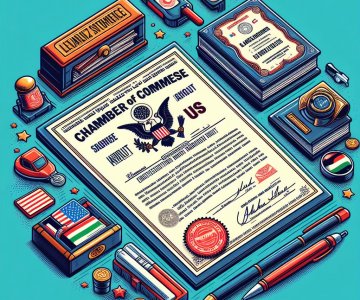Simplifying International Document Legalization: China Apostille Services in the USA

In an increasingly interconnected world, the need for international document legalization has become paramount. Whether it’s for business transactions, academic pursuits, or personal matters, ensuring the authenticity and legality of documents across borders is crucial. This process, however, can often be complex and daunting, particularly when dealing with countries like China. Fortunately, China Apostille Services in the USA offers a streamlined solution to this challenge.
Apostille certification, as defined by the Hague Convention of 1961, is a simplified method of legalizing documents for international use among member countries. The process involves verifying the authenticity of signatures and seals on public documents, making them legally valid in all participating nations. However, navigating the intricacies of apostille procedures, especially when dealing with documents intended for use in China, can be overwhelming.
China, not being a signatory to the Hague Convention, requires an alternative legalization process known as authentication or legalization through the Chinese Embassy or Consulate. This adds another layer of complexity for individuals or organizations seeking to legalize documents for use in China from the USA.
This is where China Apostille Services stepped in to streamline the process. These specialized services are equipped with the knowledge, experience, and resources to facilitate the authentication and legalization of documents for use in China. Here’s how they simplify the otherwise intricate procedure:
- Expert Guidance: China Apostille Services provides expert guidance on the specific requirements and procedures involved in legalizing documents for use in China. They understand the nuances of Chinese regulations and ensure that documents meet the necessary criteria for acceptance.
- Document Preparation: From notarization to document translation, China Apostille Services assists in preparing documents according to Chinese requirements. They ensure that documents are properly formatted and translated into Mandarin if necessary, eliminating potential delays or rejections.
- Facilitation of Legalization Process: China Apostille Services manages the entire legalization process, including obtaining authentication from the Secretary of State and legalization from the Chinese Embassy or Consulate. They navigate bureaucratic hurdles and expedite the process, saving clients valuable time and effort.
- Quality Assurance: With a focus on accuracy and attention to detail, China Apostille Services provides quality assurance throughout the legalization process. They meticulously review documents to prevent errors or discrepancies that could hinder acceptance in China.
- Convenience and Efficiency: By outsourcing the legalization process to China Apostille Services, individuals and businesses can enjoy convenience and efficiency. These services handle all aspects of document legalization, allowing clients to focus on their core responsibilities without being bogged down by administrative tasks.
In conclusion, China Apostille Services in the USA offers a comprehensive solution to the challenges associated with legalizing documents for use in China. By leveraging their expertise and resources, individuals and organizations can navigate the complex legalization process with ease and confidence. From expert guidance to efficient facilitation, these services simplify international document legalization, ensuring seamless transactions and communications between the USA and China.





Ingen kommentarer endnu